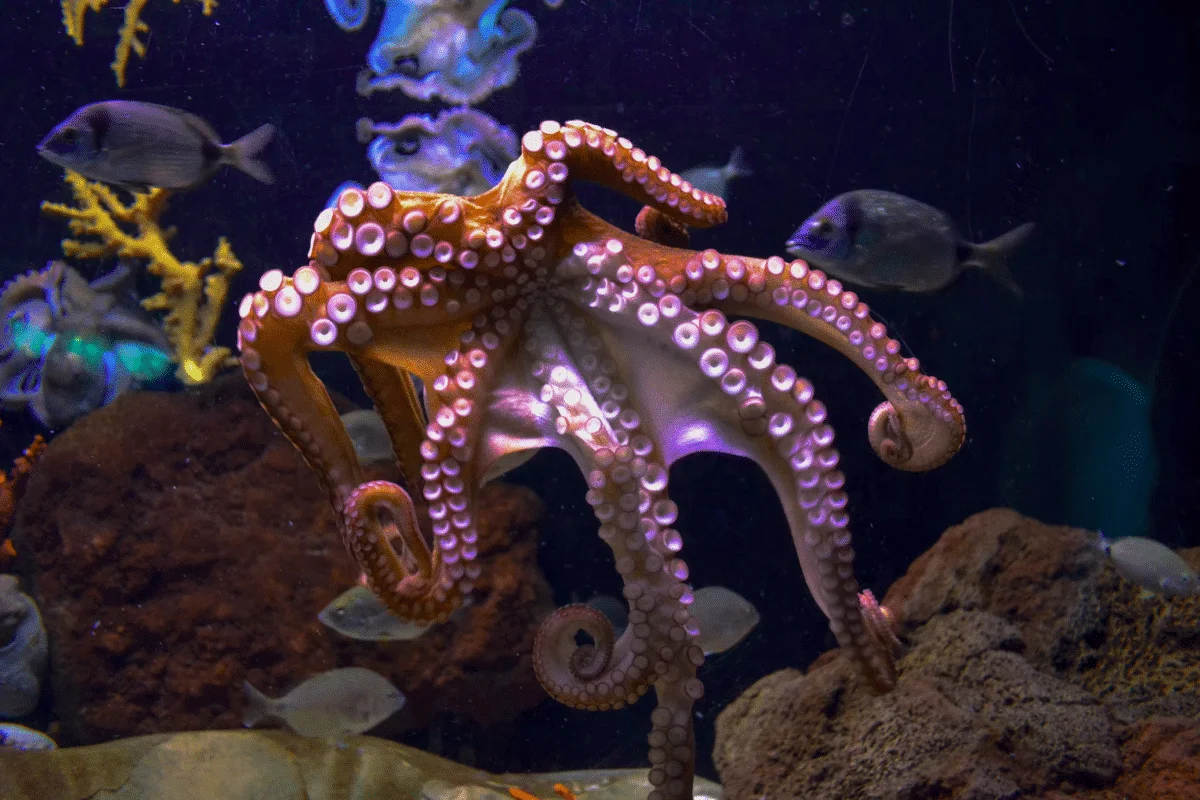When it comes to what lies beneath the surface of our oceans, we are constantly amazed and intrigued by the incredible exhibits of marine life. And at the top of that list is the epic battle between two of the most fascinating creatures of the deep: the octopus and the shark. In this underwater tug-of-war, these two predators go head to head, battling it out for survival.
With their vastly different skill sets and weaponry, this showdown between the octopus and the shark is a violent spectacle that captures the attention of both scientists and casual observers alike. So, join us as we dive in deeper to explore this unique phenomenon and learn about the secrets of the underwater world.
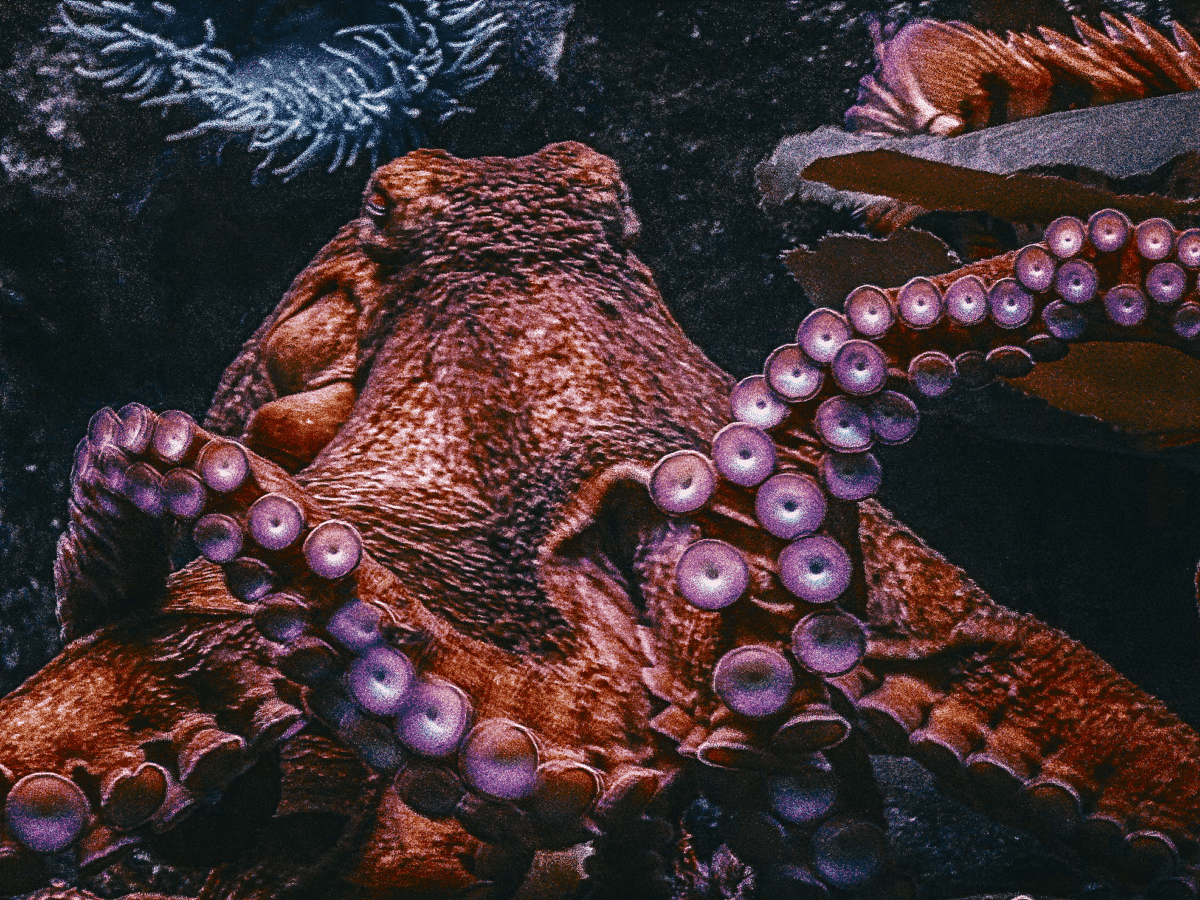
Want to jump ahead? Click below
Comparison Table
| Octopus | Shark | |
|---|---|---|
| Physical Appearance | Eight tentacles | Sleek body, fins |
| Camouflage Abilities | Master of disguise | Limited camouflage |
| Intelligence | Highly intelligent | Limited intelligence |
| Hunting Techniques | Versatile | Relies on speed |
| Prey | Crabs, fish, etc. | Fish, seals, etc. |
| Defensive Mechanisms | Jet propulsion, ink clouds, biting | It relies on strength, |
| Survival Tactics, | Camouflage, quick movements | Keen sense of smell and hearing |
Check out: Why No Aquarium Has A Great White Shark?
Octopus Vs. Shark: Who Would Win?
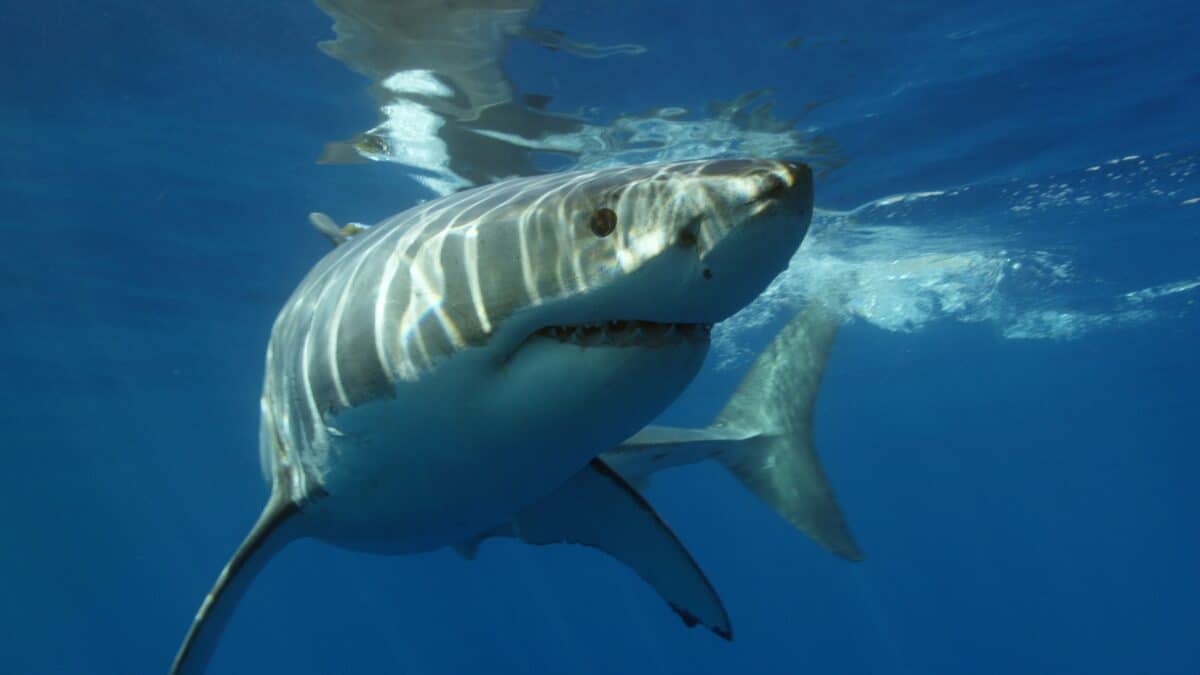
The octopus and the shark are two of the most iconic creatures of the deep, and it’s a question that many people have been asking for years: who would win in a fight between the octopus and the shark? While both predators have unique strengths and abilities, the answer to this question is more complex than it might seem.
Octopus: The Master Of Disguise And Intelligence
The octopus possesses extraordinary abilities that captivate our imagination. Its anatomy and adaptations render it a remarkable creature. With its array of eight tentacles, each adorned with a tapestry of suckers, the octopus emerges as a consummate deceiver. It wields the power to manipulate its appearance effortlessly, seamlessly blending hues and textures with its environment, ensuring an unrivaled mastery of disguise. This makes them stealthy and difficult to detect, even for the most experienced predators.
Check out Nine Brains, Three Hearts, and Other Octopus Anatomy Facts.
Octopuses are also incredibly intelligent. They can solve puzzles and have excellent memories, which allow them to learn from previous experiences; they adapt their behavior accordingly. These skills make them formidable opponents and suggest they have a significant advantage over sharks, who are less adaptable and have less cognitive ability.
Regarding diet and hunting techniques, the octopus has a wide range of prey they feed on, including crabs, fish, and even other octopuses. They use their tentacles to capture their prey, immobilizing it with their suction cups before delivering a deadly bite with their sharp beak. Their diet is versatile, and their varied hunting techniques make them capable of taking down prey much larger than themselves.
In addition to being excellent hunters, octopuses are skilled at defending themselves. When threatened, they can use a range of defensive mechanisms, including jet propulsion, ink clouds, and even biting. Octopuses are experts at escaping predators, often using camouflage and quick movements to evade capture.
Shark: The Unstoppable Predator Of The Seas
Sharks are undoubtedly the most feared and respected when it comes to predators of the deep. With their sleek bodies, razor-sharp teeth, and incredible senses, these apex predators are built for hunting and killing. Sharks have a range of adaptations that make them formidable opponents, including keen insights, powerful jaws, and the ability to swim at incredible speeds.
Sharks have a wonderful sense of smell and can detect prey from great distances, allowing them to hunt and locate their next meal. They also have keen hearing, which enables them to see in the water, making them highly efficient hunters.
In terms of diet and hunting techniques, sharks have a varied diet, including fish, seals, and even other sharks. Their powerful jaws deliver a deadly bite, crushing bones and tearing flesh. Sharks are also known for their speed and agility, allowing them to chase down fast-moving prey and avoid danger.
Sharks don’t have many options outside of brute force regarding defensive mechanisms. They are powerful animals capable of inflicting serious damage on their attackers; they don’t need to resort to defensive mechanisms to protect themselves.
Comparing The Skill Sets And Weaponry Of Octopus Vs. Shark
Both octopuses and sharks have unique skill sets and weaponry, making them formidable predators. However, in a head-to-head battle, the octopus may have a slight advantage over the shark. With their camouflage abilities and intelligence, octopuses can often evade capture or mount a successful defense against an attacker.
On the other hand, sharks rely more on brute force to take down their prey and protect themselves from danger. While they are powerful and deadly in their own right, they may be at a disadvantage against the more adaptable and versatile octopus.
The Art Of Escaping Danger: Octopus Vs. Shark
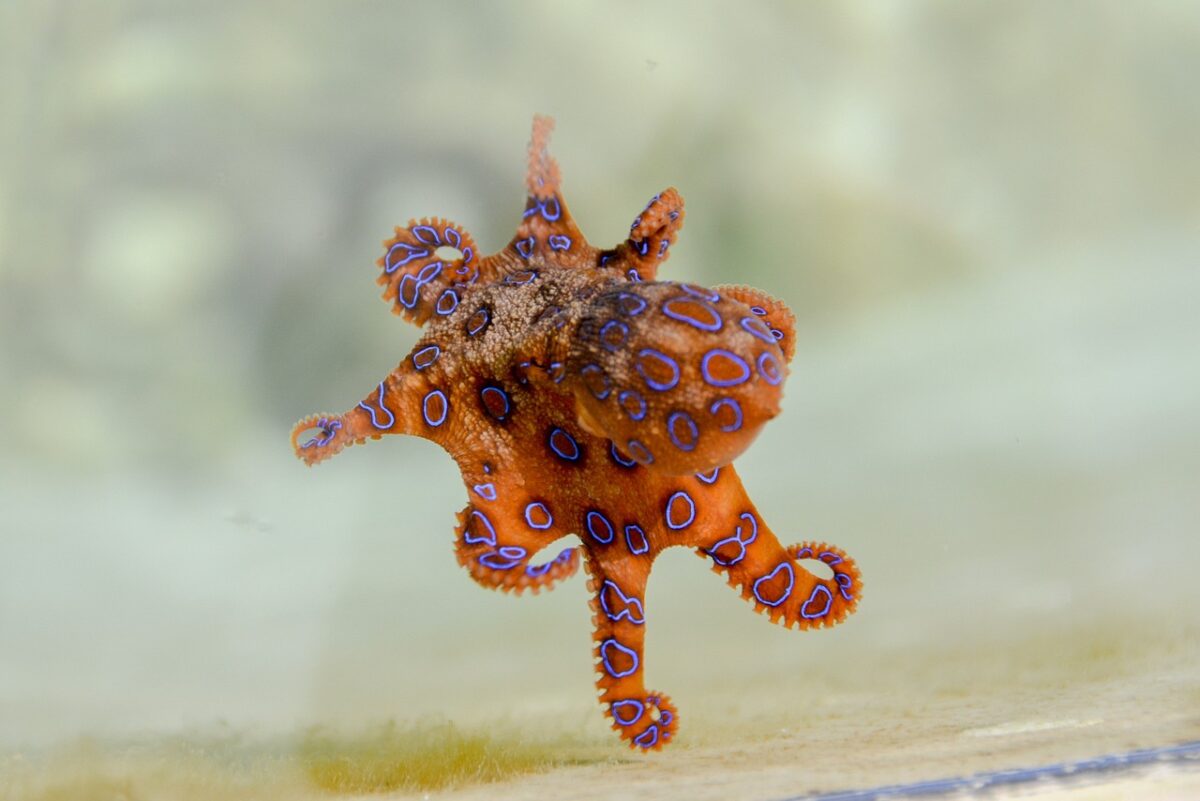
Regarding survival in the ocean, the octopus and the shark have developed pretty impressive tactics for avoiding predators and capturing prey. Let’s take a closer look at the different strategies these creatures use.
Octopus Strategies For Evading Predators
Octopuses are well known for their ability to change their skin color and texture to blend in with their environment. This incredible camouflage allows them to hide from predators such as sharks, who rely on sight to find prey. Even more impressive, octopuses can also mimic the texture of the surrounding objects, making them practically invisible to the naked eye.
Another powerful tool in the octopus’ arsenal is its morphology. With eight arms covered in suckers, the octopus can easily maneuver through the water and even escape from the grip of its attacker. Octopuses can regenerate their limbs if bitten off, further aiding their survival.
Shark Tactics For Hunting And Capturing Prey
Sharks are formidable predators, equipped with senses that make them some of the deadliest hunters in the ocean. Their keen sense of smell can detect a single drop of blood from hundreds of meters away, while their lateral line system allows them to sense the vibrations of their prey.
When capturing their prey, sharks rely on their speed and power. With razor-sharp teeth and powerful jaws, they can quickly overpower their game and tear them apart easily. Sharks are also known for their ability to breach out of the water, catching their prey by surprise and launching a deadly attack.
Case Examples Of How Octopus And Sharks Escape Evils
Even with their impressive tactics, the octopus and the shark still face danger in the ocean. But they have shown time and time again that they can escape their predators and live to see another day.
In one example, an octopus was being pursued by a hungry shark when it suddenly released a cloud of ink into the water. The shark, disoriented by the ink, lost sight of its target, and the octopus could slip away to safety.
In another example, a great white shark chased down a seal when a group of smaller sharks suddenly attacked it. The great white was forced to retreat, allowing the seal to escape unharmed.
Secrets Of Underwater World: Octopus And Shark Population
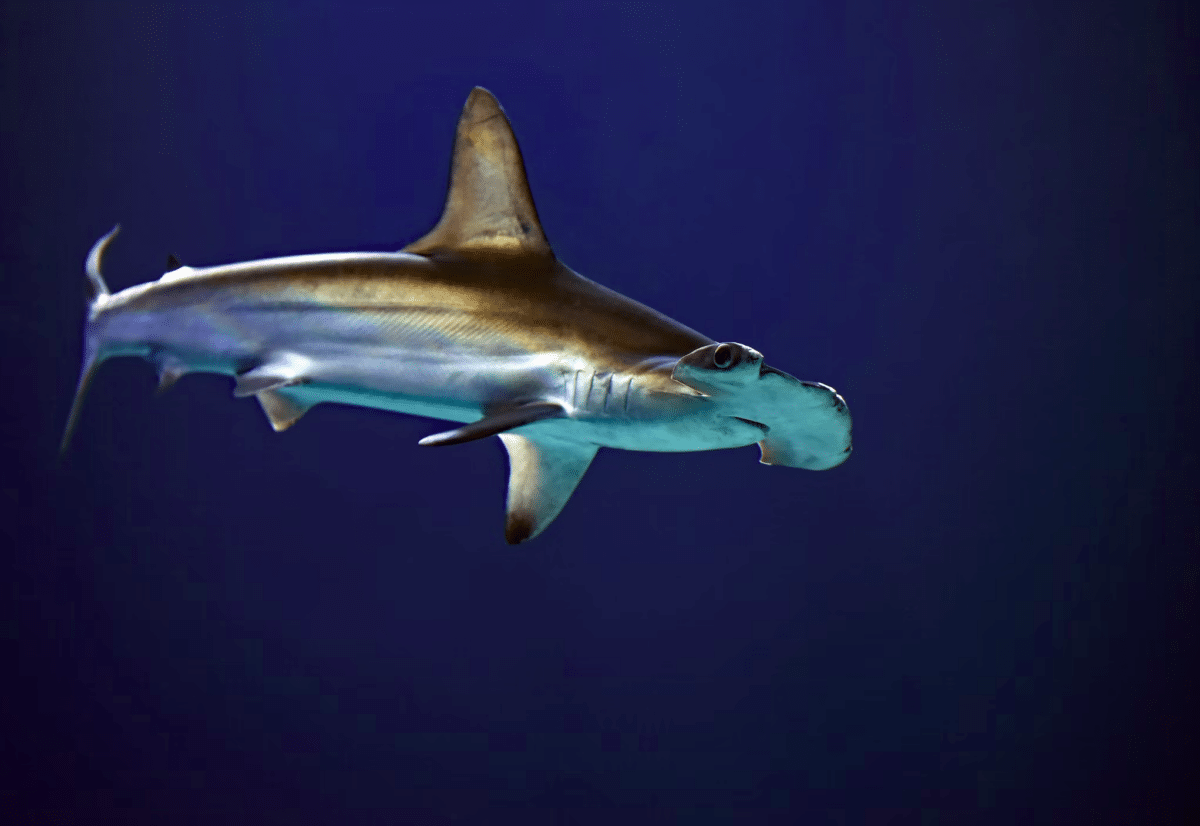
Octopuses are fascinating creatures that inhabit every ocean except for the cold waters surrounding Antarctica. They have no distinct migration patterns and can be found in various habitats, ranging from shallow tide pools to the ocean’s dark depths.
The life cycle of the octopus is a fascinating one. Males will fertilize the females’ eggs, and after laying their eggs, the female will waste away and die. The male then guards and protects the eggs until they hatch several weeks later. The male will also die once the baby octopuses emerge, completing the life cycle.
- Shark Population And Distribution
Sharks are one of the oldest living species on the planet, with species dating back over 400 million years. They can be found in almost every ocean on the earth and have adapted to various environments, from warm, shallow waters to the darkest depths of the open ocean.
Furthermore, sharks reproduce through oviparity, where the mother lays fertilized eggs, which hatch after several months. The young sharks are born fully functional and are left to fend for themselves. Sharks are essential to the ocean’s ecosystem, playing a crucial role in maintaining the balance of the food chain.
- Environmental Impact And Conservation Efforts
Both octopuses and sharks face several threats to their populations due to human activity. Overfishing, pollution, and climate change are just a few factors that can significantly impact these species.
Efforts to protect and conserve octopuses and sharks have recently increased. Governments and conservation organizations have implemented measures to limit fishing and protect critical habitats. Eco-tourism and public education initiatives have also helped raise awareness about the importance of these species and the need to save them.
Key Points
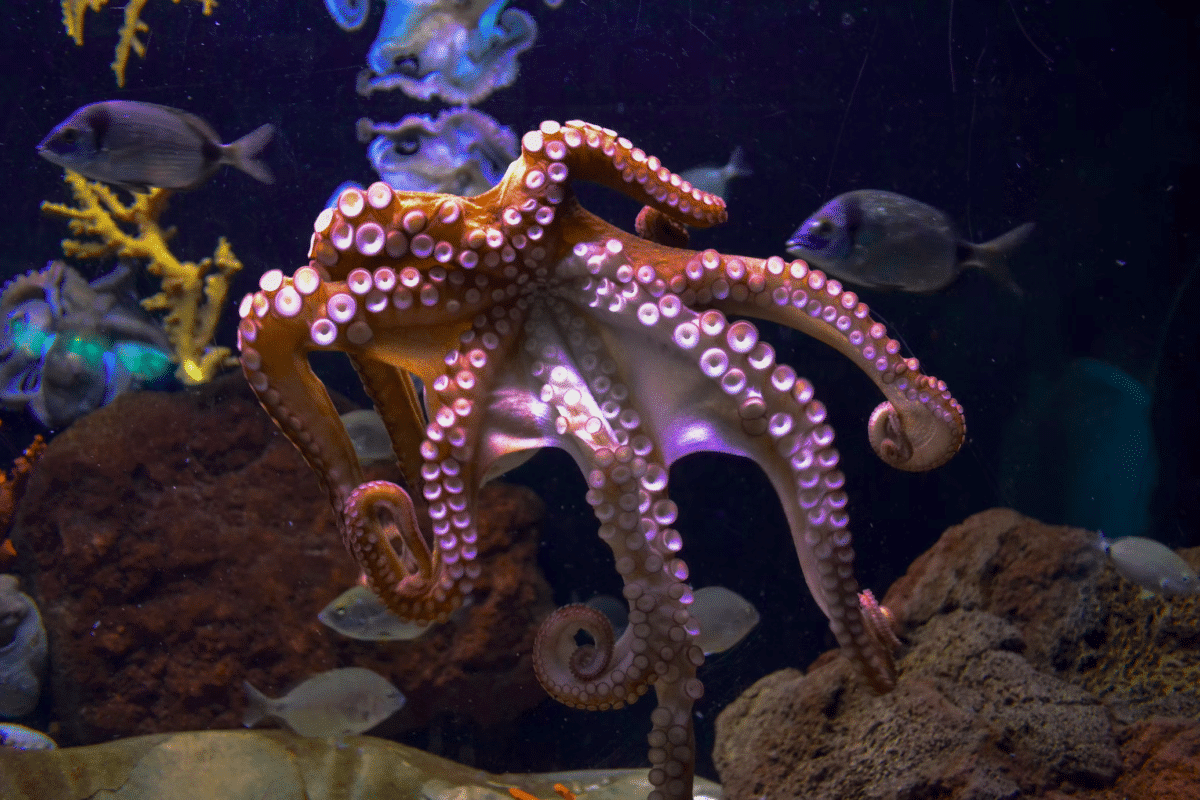
| The octopus and the shark are both predators and have unique strengths and abilities; the answer to this question is more complex than it might seem. |
| Regarding diet and hunting techniques, the octopus has a wide range of prey they feed on, including crabs, fish, and even other octopuses. |
| Sharks are formidable predators, equipped with senses that make them some of the deadliest hunters in the ocean. |
| The life cycle of the octopus is a fascinating one. Males will fertilize the females’ eggs, and after laying their eggs, the female will waste away and die. |
| Sharks are one of the oldest living species on the planet, with species dating back over 400 million years. |
Wrapping Up with Octopus Vs. Shark
Witness an epic battle for survival as an octopus and a shark clash in a thrilling underwater tug-of-war. This intense encounter between two incredible creatures showcases the raw power and cunning strategies of nature’s fiercest competitors.
Thanks for following along with me! I hope you enjoyed reading about a topic that really intrigues me. Next up is, Behold, the Most Massive Flock of Swarming Locusts Ever Seen, Introducing the Smallest Species of Bat in the entire World, and Meet Lolong, the Largest Crocodile Ever and Rare Sighting: Cape Fur Seal Eats Thresher Shark in Cape Town.
Join our Forum for free today!

- Kind Elephant Merciful To Lion Cubs - July 22, 2024
- Beachgoers Save Massive Shark Stranded In Florida - July 22, 2024
- Pit Bull Rescued From Being Chained Its Whole Life Gets A Surprise - July 21, 2024

